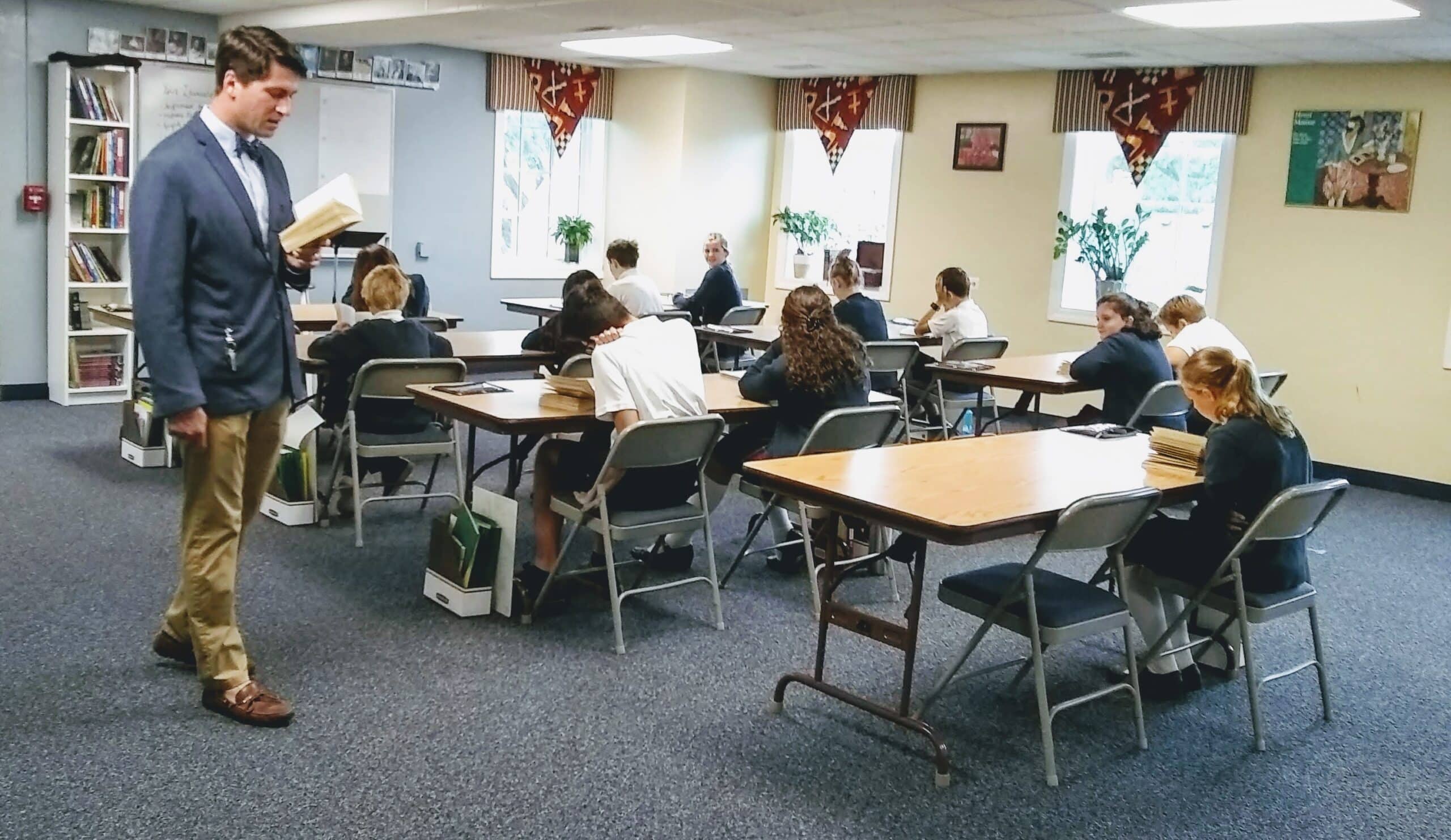By Ashlyn Duff, Explorers II Teacher
In 1 Corinthians 12 the apostle Paul uses a unique metaphor to explain how the Church is supposed to function. Take a look:
For the body does not consist of one member but of many. If the foot should say, “Because I am not a hand, I do not belong to the body,” that would not make it any less a part of the body. And if the ear should say, “Because I am not an eye, I do not belong to the body,” that would not make it any less a part of the body. If the whole body were an eye, where would be the sense of hearing? If the whole body were an ear, where would be the sense of smell? But as it is, God arranged the members in the body, each one of them, as he chose. If all were a single member, where would the body be? As it is, there are many parts, yet one body.
1 Cor 12:14-20 ESV
Paul wants us to understand that the Church, like the human body, is composed of many connected parts. Each part is necessary because each part serves a vital role in how the body functions.
At Clapham School you might find each classroom functioning similarly. For example, on a regular day, you will observe that our classrooms are comprised of people, teachers and students, who have distinct roles. Teachers make decisions about how they will speak to their students, how they will think about their students, what to teach, what to review, how to set a feast of ideas before their students, and how to honor God by being faithful in their work. Students, too, make decisions about how they will attend, how they will speak to their peers, how they will respect their teacher, how they will complete worthy work, and how they will form their habits.
Now, these habits are established as a result of a person’s will, which, Charlotte Mason explains, is a person’s capacity to make choices. Each choice is an expression of the will and, through this expression, habits are formed. But, we must note, our habits also form our will! There is a reciprocal relationship between one’s will and one’s habits. Charlotte Mason, in her philosophy of education, addresses the “way of the will” and explains how this takes place:
“But the one achievement possible and necessary for every man is character; and character is as finely wrought metal beaten into shape and beauty by the repeated and accustomed action of will.”
The will controls the choices we make, but the will, and one’s character, can also be molded and shaped by habits. In the classroom this happens through the material we study, the books we read, the ideas we encounter, the ways that we speak and act, and the subjects we build relationships with. In this way, habit formation is not simply about “self-improvement”, but orienting our aims to the things of God: outside of ourselves, even outside of our personal sanctification.
I am convinced that in the Clapham classroom the formation of the will should be done in light of the metaphor that Paul uses in his letter to the Corinthians. That is, teachers and students are not isolated, but have the opportunity to participate in a body, in a family, in which each person has a part to fulfill according to God’s Word. The idea of seeing ourselves as an integral part of the whole, rather than mere isolated individuals, is the best reason for re-forming our wills toward the things of God. Our will has an effect on the entire body of Christ.
I encourage my students to work on their habits through explaining that they are growing in a role that will impact the whole class, the whole body, the whole family in which they participate.
So, each day, as meaningful conversations take place, both teachers and students are making choices and creating habits. The will is being formed through the living stories, through the equations, through the language and discussions, through habit training and letter formation. Along with this, the teachers and the students are given an opportunity to participate in something greater than themselves when they fulfill their part in the body of Christ. Everyone has a part to play, and when this is fulfilled, it allows our classroom to function as it ought. It also creates the most magnificent environment for the formation of will for all those involved. My prayer is that this reality might translate beyond the classroom into every home, into society and into the vocations in which our students and teachers engage, now and in the future.
Finally, a closing thought on this subject from Charlotte Mason: “Will, free will, must have an object outside of self; and the poet has said the last word so far as we yet know,
‘Our wills are ours we know not how;
Our wills are ours to make them Thine.’”
Tennyson, In Memoriam

